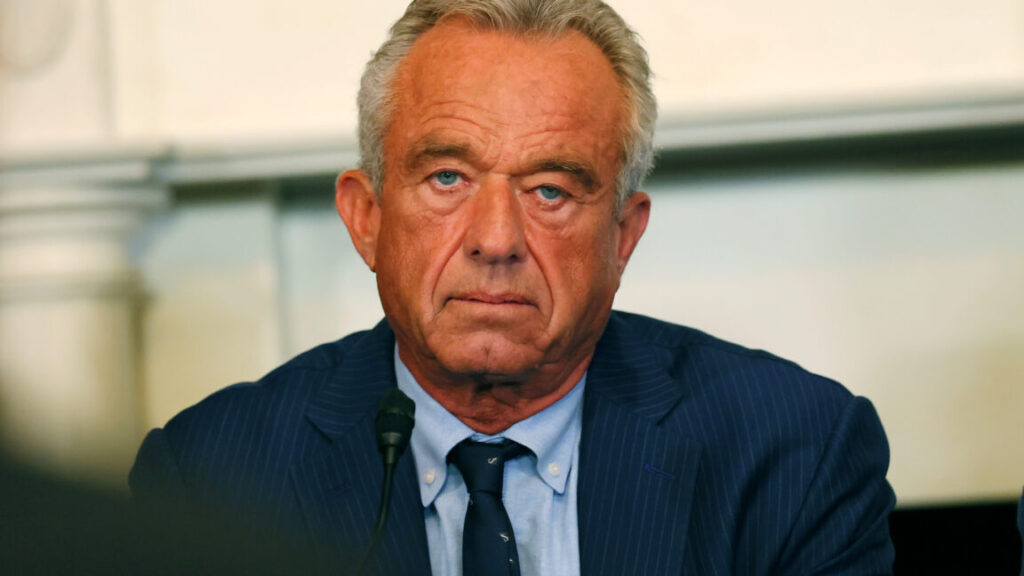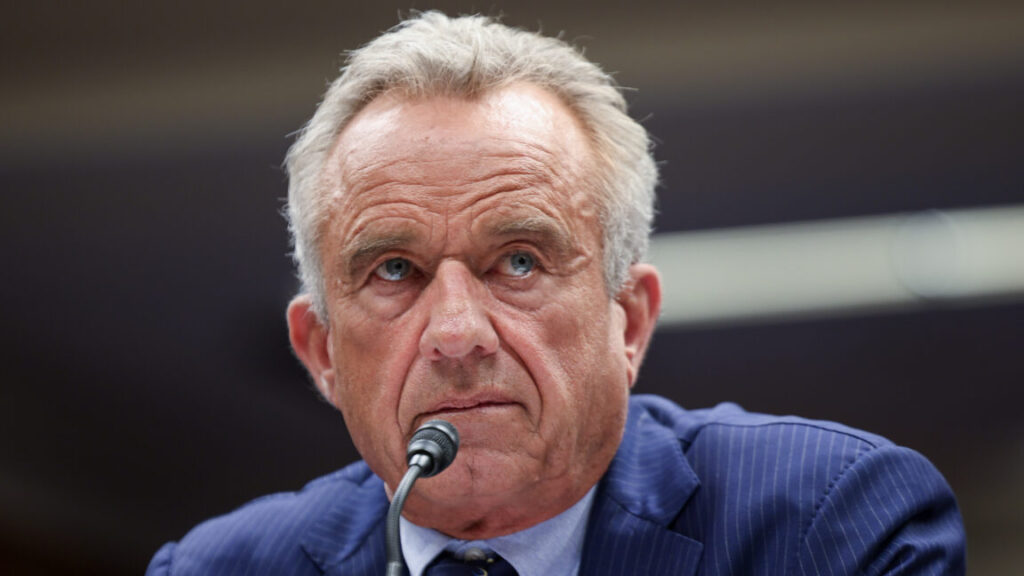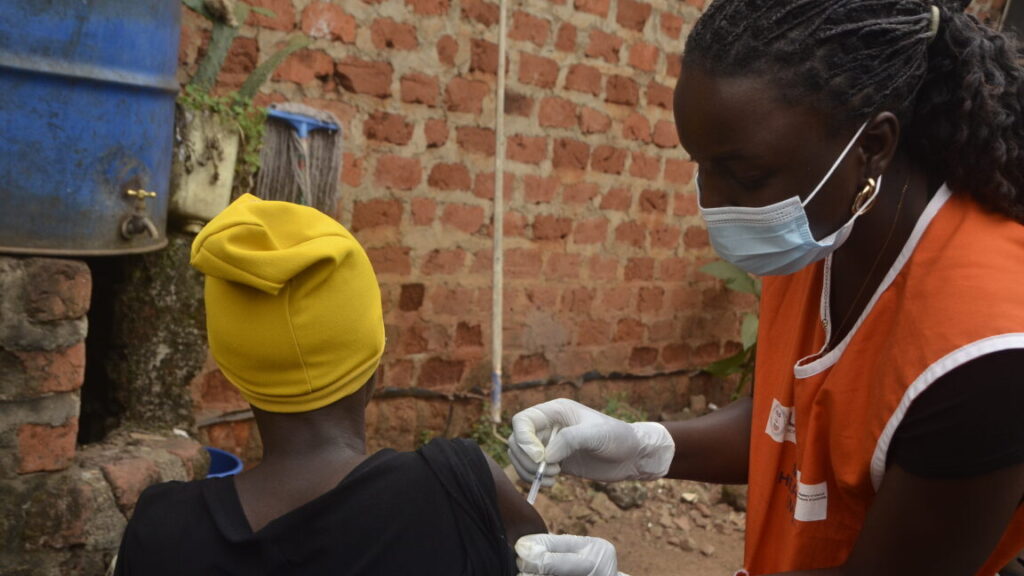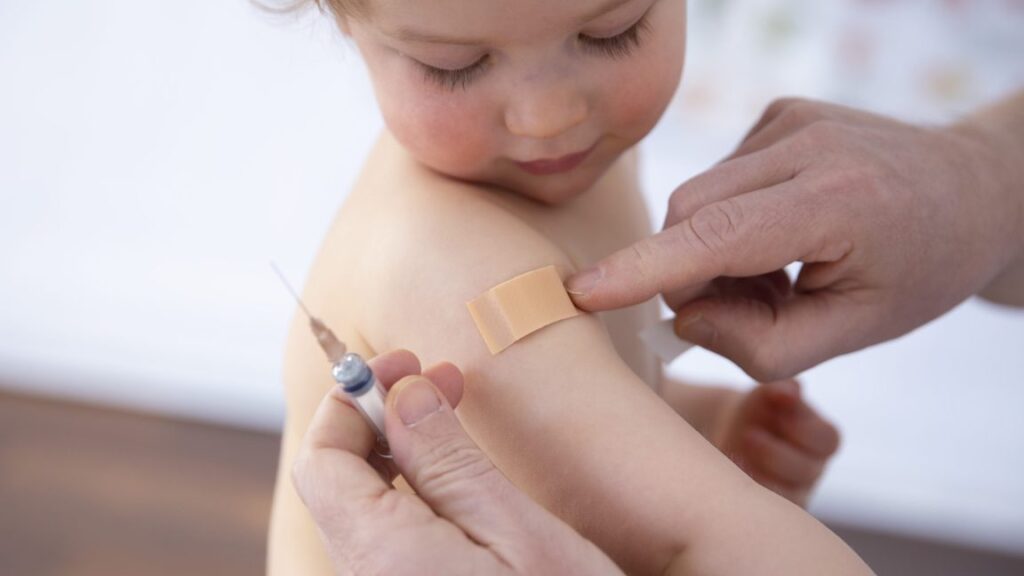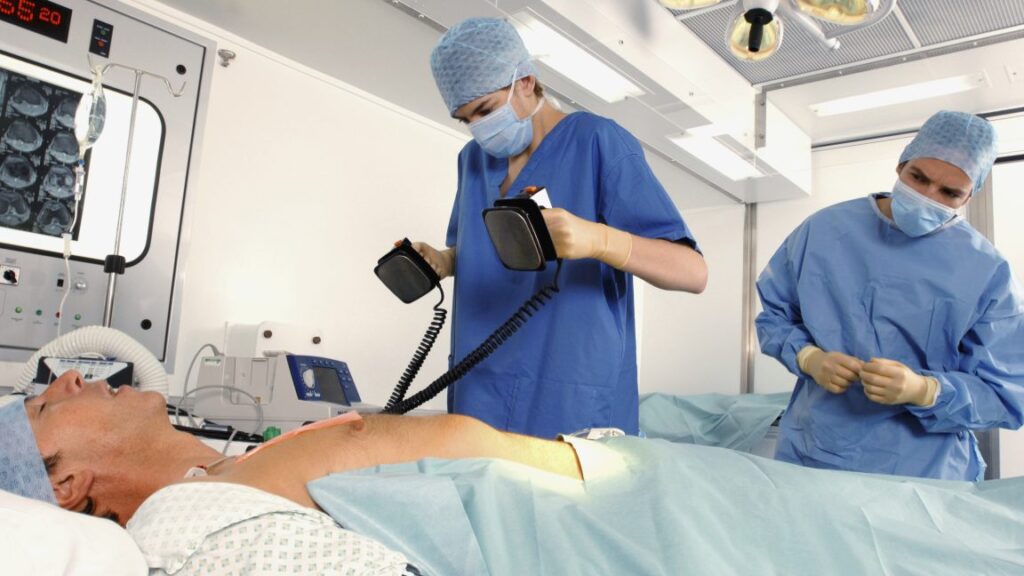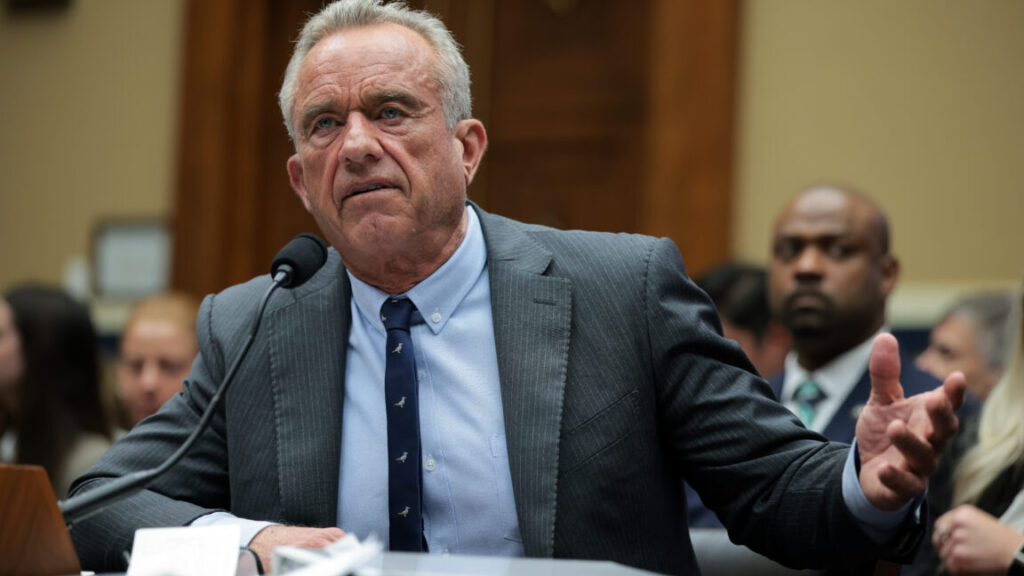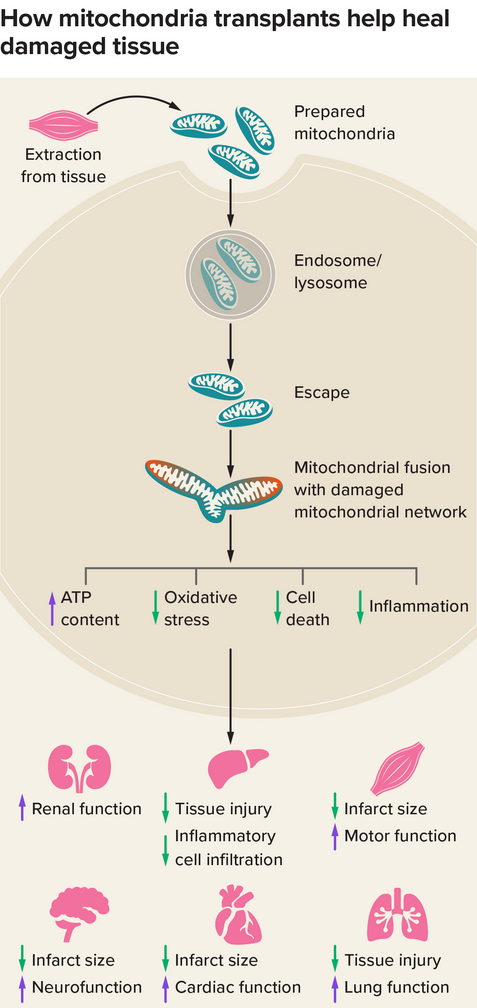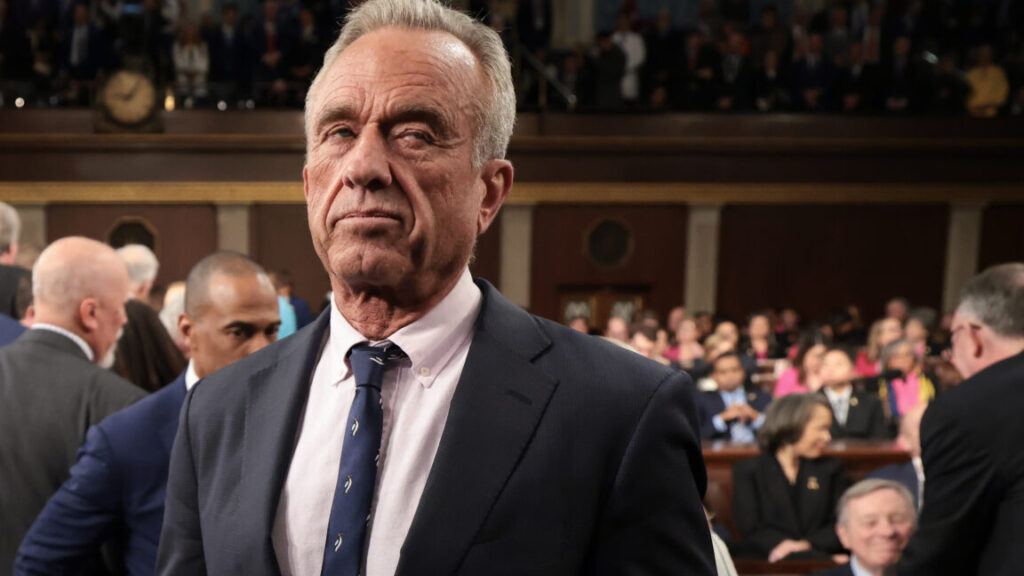Inventor claims bleach injections will destroy cancer tumors
A lack of medical training isn’t stopping a man from charging $20,000 for the treatment.
Credit: Aurich Lawson | Getty Images
Xuewu Liu, a Chinese inventor who has no medical training or credentials of any kind, is charging cancer patients $20,000 for access to an AI-driven but entirely unproven treatment that includes injecting a highly concentrated dose of chlorine dioxide, a toxic bleach solution, directly into cancerous tumors.
One patient tells WIRED her tumor has grown faster since the procedure and that she suspects it may have caused her cancer to spread—a claim Liu disputes—while experts allege his marketing of the treatment has likely put him on the wrong side of US regulations. Nonetheless, while Liu currently only offers the treatment informally in China and at a German clinic, he is now working with a Texas-based former pharmaceutical executive to bring his treatment to America. They believe that the appointment of Robert F. Kennedy Jr. as US health secretary will help “open doors” to get the untested treatment—in which at least one clinic in California appears to have interest—approved in the US.
Kennedy’s Make America Healthy Again movement is embracing alternative medicines and the idea of giving patients the freedom to try unproven treatments. While the health secretary did not respond to a request for comment about Liu’s treatment, he did mention chlorine dioxide when questioned about President Donald Trump’s Operation Warp Speed during his Senate confirmation hearing in February, and the Food and Drug Administration recently removed a warning about the substance from its website. The agency says the removal was part of a routine process of archiving old pages on its site, but it has had the effect of emboldening the bleacher community.
“Without the FDA’s heavy-handed warnings, it’s likely my therapy would have been accepted for trials years earlier, with institutional partnerships and investor support,” Liu tells WIRED. He says he wrote to Kennedy earlier this year urging him to conduct more research on chlorine dioxide. “This quiet removal won’t immediately change everything, but it opens a door. If mainstream media reports on this shift, I believe it will unlock a new wave of serious [chlorine dioxide] research.”
For decades, pseudoscience grifters have peddled chlorine dioxide solutions—sold under a variety of names, such as Miracle Mineral Solution—and despite warnings and prosecutions have continued to claim the toxic substance is a “cure” for everything from HIV to COVID-19 to autism. There is no credible evidence to back up any of these claims, which critics have long labeled as nothing more than a grift.
The treatments typically involve drinking liquid chlorine dioxide on a regular basis, using solutions with concentrations of chlorine dioxide of around 3,000 parts per million (ppm), which is diluted further in water.
Liu’s treatment, however, involves a much higher concentration of chlorine dioxide—injections of several millilitres of 20,000 ppm—and, rather than drinking it, patients have it injected directly into their tumors.
I injected myself to test it
Liu claims he has injected himself with the solution more than 50 times and suffered no side effects. “This personal data point encouraged me to continue research,” he says.
Liu has been making the solution in his rented apartment in Beijing by mixing citric acid with sodium chlorite, according to an account he shared earlier this month on his Substack that revealed that a “violent explosion” occurred when he made a mistake.
“The blast blacked out my vision,” Liu wrote. “Dense clouds of chlorine dioxide burst into my face, filling my eyes, nose, and mouth. I stumbled back into the apartment, rushing to the bathroom to wash out the gas from my eyes and respiratory tract. My lungs were burning. Later, I would find 4–5 cuts on my upper thigh—shards of glass had pierced through my pants.” Liu also revealed that his 3-year-old daughter was nearby when the explosion happened.
Liu began a preclinical study on animals in 2016, before beginning to use the highly concentrated solution to treat human patients in more recent years. He claims that between China and Germany, he has treated 20 patients to date.
When asked for evidence to back up his claims of efficacy, Liu shared links to a number of preprints, which have not been peer-reviewed, with WIRED. He also shared a pitch deck for a $5 million seed round in a US-focused startup that would provide the chlorine dioxide injections.
The presentation contains a number of “case studies” of patients he has treated—including a dog—but rather than featuring detailed scientific data, the deck contains disturbing images of the patients’ tumors. The deck also contains, as evidence of the treatment’s efficacy, a screenshot of a WhatsApp conversation with a patient who was apparently treating a liver tumor with chlorine dioxide.
“Screenshots of WhatsApp chats with patients or their doctors is not evidence of efficacy, yet that is the only evidence he provides,” says Alex Morozov, an oncologist who has overseen hundreds of drug trials at multiple companies including Pfizer. “Needless to say, until appropriate studies are done and published in peer-reviewed journals, or presented at a reputable conference, no patients should be treated except in the context of clinical trials.”
WIRED spoke to a patient of Liu’s, whose descriptions of the treatment appear to undermine his claims of efficacy and raise serious questions about its safety.
“I bought the needles online and made the chlorine dioxide by myself [then] I injected it into the tumor and lymph nodes by myself,” says the patient, a Chinese national living in the UK. WIRED granted her anonymity to protect her privacy.
The patient had previously been taking oral solutions of chlorine dioxide as an alternative treatment for cancer, but, unsatisfied with the results, she contacted Liu via WhatsApp. On a spring evening last year, she took her first injection of chlorine dioxide and, she says, almost immediately suffered negative side effects.
“It was fine after the injection, but I was woken up by severe pain [like] I had never experienced in my life,” she says. “The pain lasted for three to four days.”
Despite the pain, she says, she injected herself again two months later, and a month after that she traveled to China, where Liu, despite having no medical training, injected her, using an anesthetic cream to numb the skin.
“While this act technically fell outside legal boundaries, in China, if the patient is competent and gives informed consent, such compassionate-use interventions rarely attract regulatory attention unless harm is done,” Liu tells WIRED.
Legal in China?
Experts on Chinese medical regulations tell WIRED that new treatments like Liu’s would have to meet strict conditions before they can be administered to patients. “It would have to go through the same steps in China as it does in the US, so that will involve clinical studies, getting ethics approval at the hospitals, and then the situation would have to be reviewed by the Chinese government,” Ames Gross, founder and president of Pacific Bridge Capital, tells WIRED. “I don’t think any of it sounds very legal.” The Chinese Ministry of Foreign Affairs, which handles all international press inquiries, did not respond to a request for comment.
As well as the initial pain, the chlorine dioxide injections also appear, the patient says, to have made the cancer worse.
“The tumor shrinks first, then it grows faster than before,” she says, adding: “My tumor has spread to the skin after injection. I suspect it is because the chlorine dioxide has broken the vein and the cancer cells go to the skin area.”
Liu did not agree with this assessment, instead blaming the fact that the patient had not completed the full course of four injections within a month, as he typically prescribes.
The patient says that thanks to a WeChat group that Liu set up, she is also in contact with other people who have had chlorine dioxide injections. One of the women, who is based in Shenzhen, China, had at least one injection of chlorine dioxide to treat what was described as vaginal cancer, but she says she is also suffering complications, according to screenshots of conversations reviewed by WIRED.
“After the injection, there was swelling and difficulty urinating,” the Chinese woman wrote. “It was very uncomfortable.”
Despite having injected a patient in China last August, Liu tells WIRED, he is not a licensed physician—he calls himself “an independent inventor and medical researcher.” The treatment, which he says is “designed to be administered by licensed physicians in clinical settings,” is so painful that it needs to be given under general anesthetic.
While Liu’s website says the treatment is being offered at clinics in Mexico, Brazil, and the Philippines, he tells WIRED that the treatment is currently only being offered at the CMC Rheinfelden clinic on the German-Swiss border. Liu features Dr. Wolfgang Renz from the clinic on his own website as one of his partners; the clinic itself does not advertise the treatment on its own website.
In conversations on WhatsApp shared with WIRED, a representative of the clinic named Lena told a prospective patient that it didn’t advertise the chlorine dioxide procedure because it was “not a legal treatment.” Lena later wrote that chlorine dioxide was not referenced on an invoice the clinic sent the same prospective patient because it is “not a legal treatment.” Lena also told the prospective patient that they had treated patients from France, Italy, and the US, according to a recording of a phone call shared with WIRED. One Italian woman is currently trying to raise money to fund her treatment in the German clinic on GoFundMe.
When asked about her comments, Lena told WIRED, “Either [the patient] misquoted me or my English was not very accurate. I repeatedly told [the patient] that it is not an approved therapy and therefore requires very detailed consent and special circumstances to be eligible for this treatment.” The prospective patient was told that she would need to bring documents detailing her prior treatment.
Renz did not respond to multiple requests for comment.
Lena also says that patients who have exhausted every other possible treatment have “the right to be treated with non-approved interventions under strict ethical conditions, full medical supervision, and informed patient consent.” The Federal Institute for Drugs and Medical Devices, which regulates medical products in Germany, did not respond to a request for comment, but Liu tells WIRED that German authorities are investigating a complaint about the clinic.
Expanding across the Pacific
Liu now appears laser-focused on making his treatment available in the US. Despite the lack of clinical data to back up his claims, Liu claims to have signed up over 100 US patients to take part in a proposed clinical research program. Liu shared a screenshot with WIRED including what appeared to be patients’ full names, zip codes, and the type of cancer they are suffering from. It’s unclear if any of the patients had agreed to have their information shared with a journalist.
Liu says he has recruited most of his potential patients via his own website. “Are You a U.S. Cancer Patient? Join the National Campaign to legalize a breakthrough therapy,” a popup that sometimes appears on Liu’s website reads, urging visitors to fill out a patient advocacy application to potentially become part of a clinical trial.
One of those who signed up is Sarah Jones, who has been diagnosed with stage 4 anal cancer that has metastasized to the lymph nodes. Jones, whose identity WIRED is protecting with a pseudonym, has already been treated with chemotherapy and drugs like cisplatin and paclitaxel. The chemotherapy originally caused the tumor to shrink, but it has since returned, and Jones is now seeking alternative treatments.
“I spend my days treating this disease like a job. Red light therapy, guided meditations, exercising, eating a keto-strong diet, and researching,” Jones tells WIRED. “This is how I stumbled upon Liu and his intratumoral injections.”
Despite signing up for a potential trial, Jones understands the risks but feels as if she is running out of choices. “I am extremely concerned that there are but a handful of patients and no data to speak of for this procedure,” Jones says. “I am debating all of my options and am constantly looking for anything that can help.”
This sentiment was echoed by Kevin, whose father has neck cancer and who also signed up as a potential patient for the trial. “If you’re in any cancer patient’s shoes, if you’re out of options, what else do you have to do? You either keep trying new therapies, or you die.”
Another US-based patient with untreated colon cancer who signed up on Liu’s website was informed that they should consider traveling to Germany for treatment, according to a screenshot of an email response from Liu, shared with WIRED. The email outlined that the cost would be €5,000 per injection, adding that “typically 4 injections [are] recommended.”
When the conversation moved to WhatsApp, Liu asked the patient what size the tumor was. The patient, who was granted anonymity to protect their privacy, told Liu the tumor was 3.8 centimeters, according to a screenshot of the WhatsApp conversation reviewed by WIRED.
Liu responded with inaccurate details and information that the patient did not share. Liu also referred to a rectal tumor rather than a colon tumor.
When the patient said they didn’t have the money to travel to Europe for the treatment and asked about getting it in the US, referencing the Williams Cancer Institute in Beverly Hills, California, Liu suggested contacting the clinic directly.
The clinic has indicated its interest in Liu’s unproven procedure by writing about Liu’s chlorine dioxide injection protocol on its own website and mentioned it on a post on its Facebook page. Liu tells WIRED that he has spoken to Jason Williams, director of the clinic. “He is very interested and is a pioneer in the field of intratumoral injections,” Liu says. “His clinic is fully capable of implementing my therapy.”
Neither Williams nor his colleague Nathan Goodyear, who Liu also says he spoke to, responded to repeated emails and phone calls seeking comment.
Liu also gave WIRED the names of a radiologist in California, an anesthesiologist in Seattle, and a physician in Missouri who he claims to have spoken to about providing his treatment in the US, but none of them responded to requests for comment.
The Chinese inventor did, however, appear on a livestream with two US-based doctors, Curtis Anderson, a Florida-based physician, and Mark Rosenberg, who works at the Institute for Healthy Aging. The discussion, hosted on Liu’s YouTube channel, saw the two doctors ask about which cancers to treat with the injections, how to buy chlorine dioxide, or even whether it’s possible to make it themselves.
Rosenberg and Anderson did not respond to requests for comment.
Maybe RFK Jr. will dig it?
Conducting a clinical trial of a new drug in the US requires approval from the Food and Drug Administration. Liu initially claimed to WIRED that “according to Article 37 of the Declaration of Helsinki and the US Right to Try laws, my therapy is already legally permissible in the United States.” Legal experts WIRED spoke to disagree strongly with Liu’s assertions.
“It sounds like Mr. Liu may not understand how the Right to Try Act or the Declaration of Helsinki work or how they fit within the broader context in which the FDA regulates investigational drugs,” Clint Hermes, an attorney with Bass, Berry & Sims, with extensive expertise in biomedical research, tells WIRED. “If he is under the impression that the ‘breast cancer trial’ referenced on his website is sufficient on its own to allow him to market or study his therapy in the US under right to try and/or the Declaration of Helsinki, he is mistaken.”
Even advertising the efficacy of an unproven treatment could land Liu in trouble, according to the American Health Law Association (AHLA).
“Companies cannot make claims regarding safety or efficacy until their products have been approved for marketing by the FDA,” Mary Kohler, a member of the AHLA’s Life Science leadership team, tells WIRED. “From a quick glance at the website, I see several claims that FDA’s Office of Prescription Drug Promotion (OPDP) would likely consider violative as pre-approval promotion even if this company were in trials that FDA was overseeing.”
The FDA and the Department of Health and Human Services did not respond to requests for comment.
When asked about these issues, Liu clarified that he was planning to initially conduct a 100-person “clinical research program” that would not require FDA approval, but Liu’s treatment doesn’t appear to meet any of the most common exemptions that would allow such a trial to take place, according to the FDA’s own website.
Liu also says he is working with “patient advocates” and leveraging their local connections to lobby state lawmakers in “liberty-leaning states” to allow the experimental treatment to be administered. This would appear to circumvent federal rules. Liu says that he has yet to make contact with such a lawmaker directly.
While he has no approval from US government agencies or support of a state or national lawmaker, Liu does have the full backing of Scott Hagerman, an entrepreneur and former executive with 30 years experience in the pharmaceutical industry, including a decade working at Pfizer.
“It’s an unbelievable breakthrough,” Hagerman tells WIRED, adding that he and his wife have been using oral chlorine dioxide solution “for some time” as a preventative measure rather than to treat a specific ailment.
Hagerman’s time in the pharmaceutical industry included over a decade running a company called Chemi Nutra, which has in the past received a US patent for a soy-based supplement that addresses testosterone decline in men. He also says he oversaw teams of scientists who worked on drug applications to the FDA for oncology drugs.
Hagerman retired from Chemi Nutra in 2021, and in the intervening years his comments indicate that he appears to have become entirely disillusioned with the modern pharmaceutical industry, referring to it as a “drugs cartel” and “a corrupt entity that is only profit-driven.” One of the issues Hagerman references is the COVID-19 vaccine based on mRNA technology, which he describes as a “con job” while also boosting the debunked theory that childhood vaccines are linked to increasing levels of autism reported in the population.
As a result, he sees Liu’s lack of experience as a positive.
“I would welcome the fact that he’s not a doctor, that he’s not an MD, because he’s not clouded, jaded, and biased with all kinds of misguidance that would push them the wrong way,” Hagerman says, adding, “I’d like to help him establish some network here in the US, because obviously the US is where the action is.” Hagerman says he is “100 percent sure” that there would be investors willing to fund the development of this treatment.
When asked about a timeline to have this procedure legally available in the US, Hagerman said he hopes it could be achieved before the end of 2025. Liu, however, thinks it could take slightly longer, saying that he believes clinical trials will begin in 2026.
This story originally appeared on wired.com.
Inventor claims bleach injections will destroy cancer tumors Read More »


